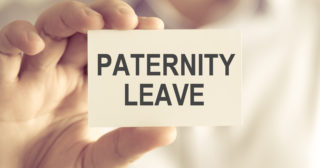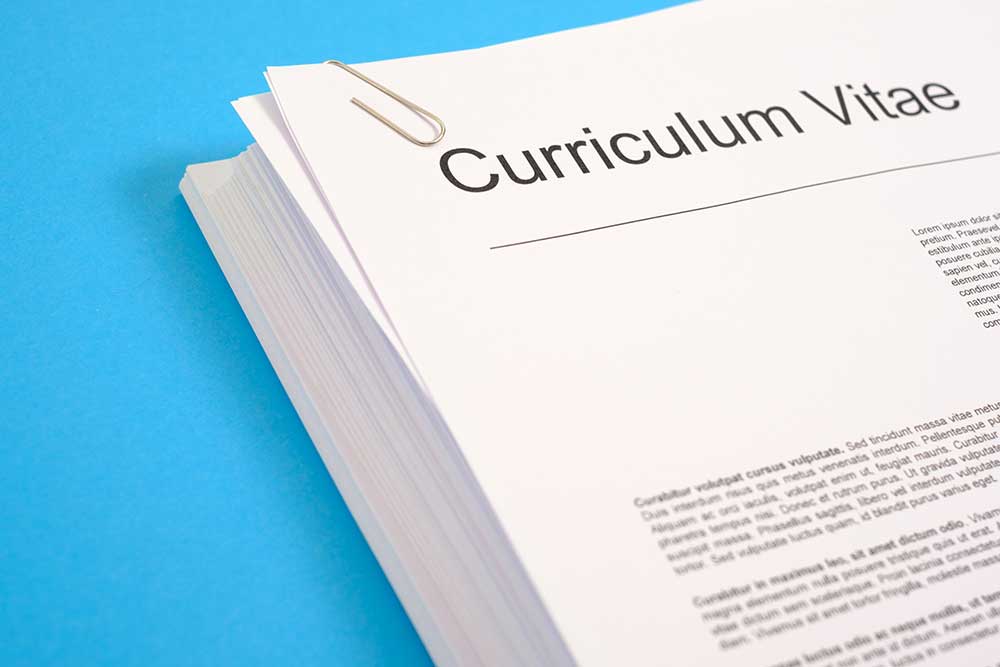
Paternity pay when you have more than one job
An increasing number of parents are doing more than one job, particularly during the cost...read more
Here’s how to explain a gap on your CV either due to extended paternity leave or spending time as a stay at home dad or due to furlough

When applying for jobs, a standout CV filled with hard-earned experience and glowing references can be a godsend. But sometimes life gets in the way of a straightforward track record. Career gaps can quickly arise.
They might be your choice. Perhaps you took extended paternity leave or decided to be a stay at home dad for a while. Or perhaps they were enforced by redundancy or coronavirus induced furlough.
It can be tempting to gloss over any gaps and divert your interviewer’s attention in another direction. This isn’t always the best strategy, though. In fact, most interviewers appreciate honesty when it comes to CV gaps. And let’s face it, anything less than complete transparency doesn’t leave a great impression.
So, if you’re going through the interview process and you’re worried about gaps in your CV, take a look at the following tips. They’ve been compiled by the experts at Check-a-Salary, a platform that provides info on pay for almost every position. You can turn a potentially negative point into a positive.
Preparation is key to success in any interview. Ensure you’re fully equipped and ready to talk about anything you’ve detailed on your CV, including any gaps in your career history.
Rehearse typical questions on career gaps and think about how you might answer them in a decisive and confident way. Remember that your interviewer isn’t trying to catch you out here. They’ll likely just be checking on the reasons for your career gaps and trying to get a sense of how you handled the situation.
If you took time off to look after children, say so. If you quit your job to travel the world, explain why your experience has made you a better employee. Your answers will tell an interviewer a lot about you, both professionally and personally. So make sure you know what you’re going to say well in advance.
Honesty is incredibly important in interviews. Some candidates will consider stretching the dates of different roles to cover potential gaps, or being slightly liberal with the truth, but it’s never a good idea to do so. Even if an interviewer is fooled by dishonesty, it’s highly likely that inconsistencies in a career history will come to light in the period following the interview, or even after that dream job offer has been made. Don’t take the risk – use your career gaps as a way of showing your interviewer that you’re a genuine, honourable candidate who won’t shy away from a challenging topic.
The Covid-19 pandemic and subsequent economic fallout will of course come up in many interviews. The pandemic will be a primary factor in career gaps for employees in a whole range of different industries, and for some these gaps might be considerable. So, if you’ve been affected by Covid-19, and the company that you worked for struggled as a result of the pandemic, be prepared to talk about it.
Don’t be afraid to say that you were made redundant due to lockdown measures, or you were furloughed as your company battled to survive. A good interviewer will be understanding and should be willing to give you a chance after such a spell of bad luck. If you’re able to discuss how you helped the community during the pandemic, or you can talk about how you approached the situation proactively, that’ll also help to get your interviewer’s attention.
Questions about CV gaps can sometimes lead to a lull in conversation, and a slightly negative feeling on the part of the interviewer. But this is easily avoided if you’re able to put a positive spin on your answer by demonstrating your skills and experience in a relevant way.
You might have been furloughed for a period of time, or even made redundant as a result of Covid-19. But you could have used that time to homeschool your children, try a new hobby, focus on DIY or learn a new language. If you’ve been proactive in lockdown and used your time wisely, then your interview is a great opportunity to show off what you’ve been up to.
This advice doesn’t just apply to CV gaps resulting from the pandemic, either. If at any point you found yourself out of work, through your own decision or an employer’s, you can always turn a potentially negative scenario into something positive by demonstrating what you did with your newfound free time.
A gap in your CV might feel like an insurmountable problem at first, but it really isn’t. Think about how you’ll explain why you were out of work and be ready to discuss how you used the time in a beneficial way. While this might sound challenging, there are great opportunities to be had if you’re willing to be honest and forthright with your interviewer. Use your answers as a way of demonstrating why you’re the right person for the job, and before long that long-awaited role could be yours.

William E. Donald from the University of Southampton questions what millennials and gen Z professionals need to know about developing a meaningful... read more

Employers are increasingly interested in encouraging intrapreneurs who think out of the box like an entrepreneur, but want the security of not working... read more

Careers expert Liz Sebag-Montefiore has advice on how to prepare for the increasing likelihood that you will face a video interview as part of your... read more

Careers expert Emma Alkirwi gives some advice on how to prepare your CV if you want to change careers. read more